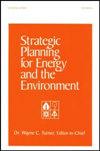使用 MCDM 技术评估太阳能生物质能:印度兰契案例研究
Q3 Environmental Science
Strategic Planning for Energy and the Environment
Pub Date : 2023-12-24
DOI:10.13052/spee1048-5236.4311
引用次数: 0
摘要
在印度,采用可持续和高效的可再生能源系统已成为实现可持续发展的当务之急。目前,印度约有 60% 的人口可以使用电网供电,但由于电力用户的不稳定性,取暖和做饭等日常活动仍需依靠太阳能和动物粪便等生物燃料。印度每年生产的生物质超过 3.7 亿吨,因此生物质锅炉在印度有很大的市场机会。本研究论文从最终用户的角度出发,提出了一种由太阳能和生物质能组成的混合系统。本文使用 multisim 软件对所提出的混合系统进行了建模和分析。此外,研究还利用多标准决策(MCDM)技术评估了印度兰契巴希亚村外围地区拟议的低成本混合动力系统蓝图的可行性。结果表明,混合系统的单位总成本为 1.76 卢比,低于太阳能发电厂和生物质发电厂的单位成本(分别为 1.628 卢比和 0.433 卢比)。分析表明,拟议的混合系统是为 Baheya 村提供电力的可靠解决方案。本文章由计算机程序翻译,如有差异,请以英文原文为准。
Assessment of Solar-Biomass Using MCDM Technique: Case Study of Ranchi, India
In India, the adoption of sustainable and efficient renewable energy systems has become imperative for achieving sustainable development. Nowadays in India about 60% of the population has access to grid power, but due to the unreliable nature of electricity users, it is still necessary to rely on biofuels such as solar and animal waste for everyday activities like heating and cooking. With over 370 million tons of biomass produced annually in India, there is a significant market opportunity for biomass boilers in the country. This research paper proposes a hybrid system comprising of solar, and biomass from an end-user perspective. The proposed hybrid system has been modelled and analyzed using multisim software. Furthermore, the study assesses the feasibility of the proposed low-cost hybrid power system blueprint for the outlying regions of Baheya village, Ranchi, India, by utilizing the Multi-Criteria Decision Making (MCDM) technique. It has been observed that the total per unit cost of a hybrid system, which is Rs. 1.76, is lower compared to the individual per unit costs of solar and biomass plants, which are Rs. 1.628 and Rs. 0.433, respectively. The analysis shows that the proposed hybrid system is a reliable solution for providing electricity in the Baheya village.
求助全文
通过发布文献求助,成功后即可免费获取论文全文。
去求助
来源期刊

Strategic Planning for Energy and the Environment
Environmental Science-Environmental Science (all)
CiteScore
1.50
自引率
0.00%
发文量
25
 求助内容:
求助内容: 应助结果提醒方式:
应助结果提醒方式:


